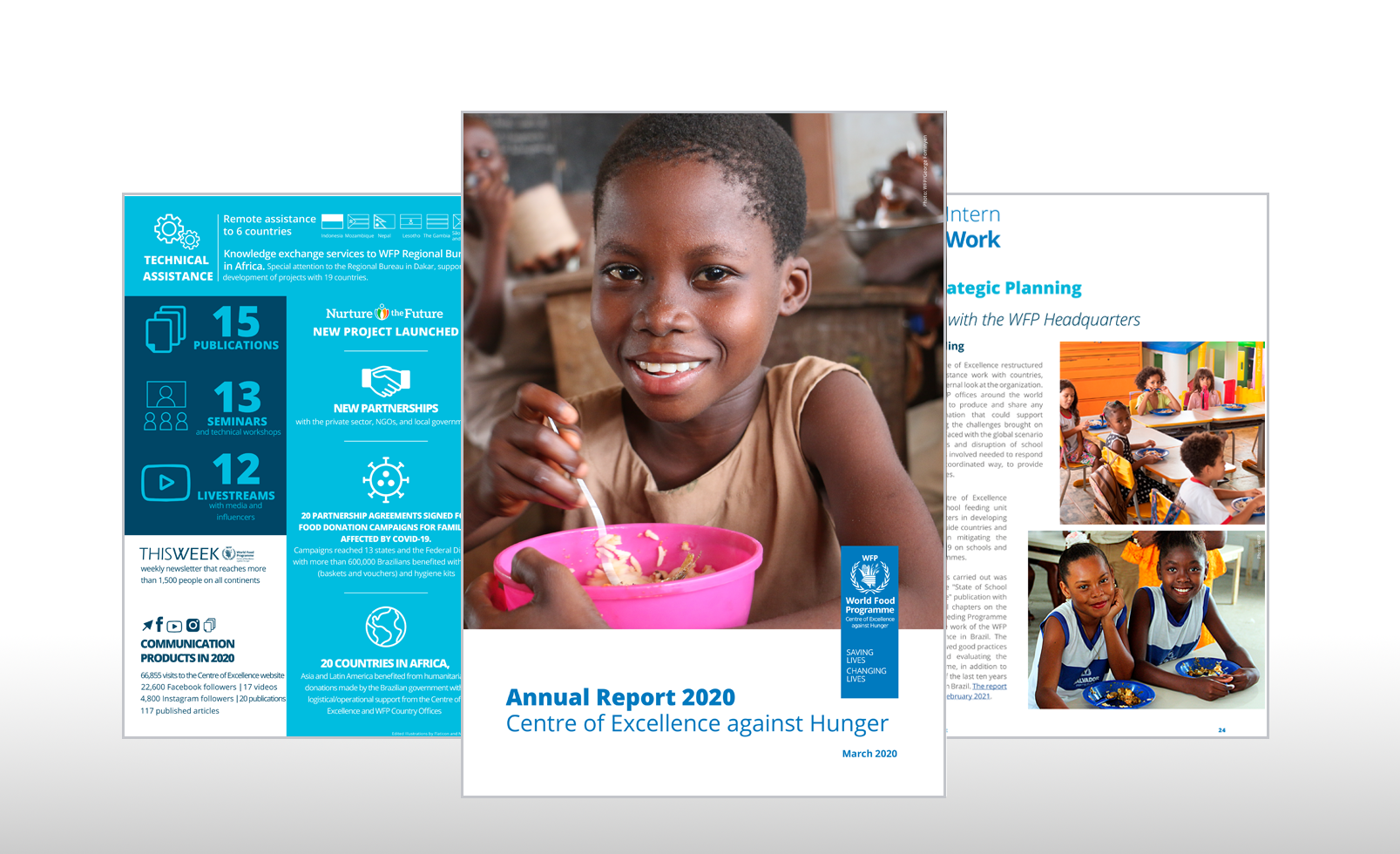
In 2020, the WFP Centre of Excellence against Hunger in Brazil underwent major changes, but activities to support countries in building resilient and sustainable solutions to fight hunger continued remotely. The 2020 Annual Report provides an overview of activities and results, including information on the new priority areas developed in Brazil to help achieve the Sustainable Development Goals (SDGs).
As a result of COVID-19 control measures, at least 310 million schoolchildren were left with no meals in 162 countries during some part of 2020. To reduce the negative impacts of school closures, we utilised South-South Cooperation mechanisms throughout the year to promote knowledge exchange and technical assistance, to contribute to the adaptation and resilience of school feeding programmes and to assist countries in the process of safely reopening schools.
Last year was also marked by the launch of the Nurture the Future project, which aims to disseminate practices to combat obesity and child malnutrition. The Beyond Cotton project also advanced, with the signing of the Mozambique country-project and the beginning of activities in the field. We also supported the Brazilian Government, through the Brazilian Cooperation Agency (ABC), in several humanitarian cooperation actions to assist countries in their plans to combat COVID-19.
In addition, we paved the way for a new phase of partnerships with NGOs, local governments, and the private sector to increasingly support actions to combat hunger within Brazil. Finally, the Nobel Peace Prize 2020 awarded to the WFP reaffirmed the importance of emergency response and of multilateralism and international cooperation to solve complex problems such as hunger.
Click here to download the document.




